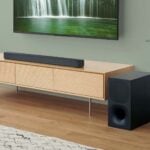Rick Wilson
Stunt Coordinator
- Joined
- Aug 1, 2002
- Messages
- 56
I have the grounded connection blocks outside grounded properly to the main house ground. The 4 cables coming into the house are connected to a 5 X 8 multiswitch. The 5X8 switch 110v connection has a ground and my outlet is grounded. This switch also has a grounding screw but I don't have anything connected to it. Should I? If so, what do I need to ground it to in the house?
I've seen surge protectors that have coax connectors. However, they have one marked ANT and one marked SAT. Would the ANT connection pass the current to the switch properly? One location I have will have 2 SAT feeds (future tivo). How does everyone protect their double lines? With the proper grounding outside, do I need the extra protection?
Thanks
I've seen surge protectors that have coax connectors. However, they have one marked ANT and one marked SAT. Would the ANT connection pass the current to the switch properly? One location I have will have 2 SAT feeds (future tivo). How does everyone protect their double lines? With the proper grounding outside, do I need the extra protection?
Thanks





